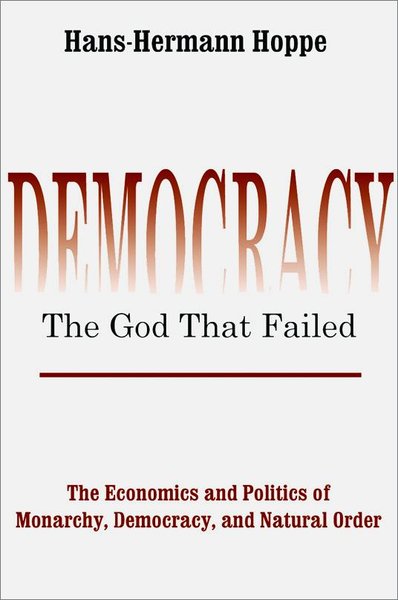I Love the Monarchy

Libertarian professor Hans-Hermann Hoppe argued, around the turn of the millennium, that monarchy is better than democracy, because the politicians who are elected do not have any kind of self-interest in the long-term future of the nation. But with a monarchy the nation is a family business and a King or Queen wants to leave it in good shape for the heirs.
You can download “Democracy – the God That Failed” in pdf format, in its entirety, here: http://bit.ly/1aL6uGa





